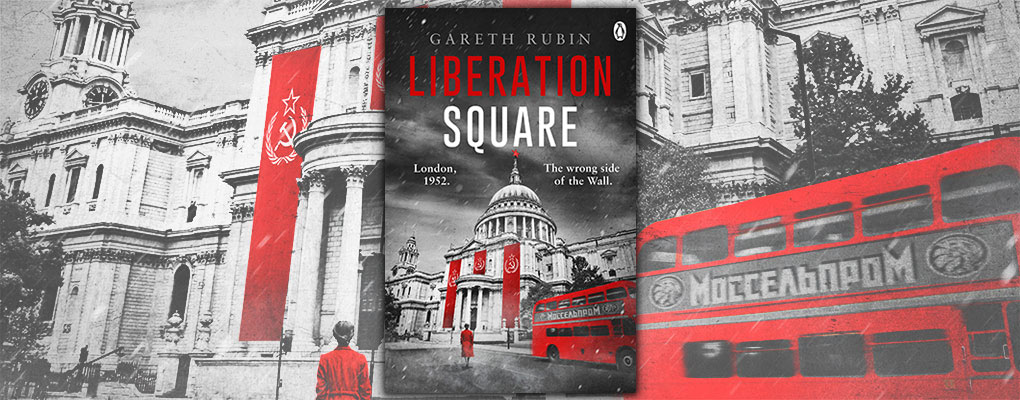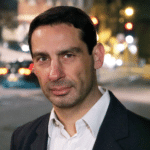Books
Dear Reader: a letter from Gareth Rubin
Dear Reader,
I grew up in a country free of tyranny and oppression. What I knew of secret police forces and governments that hated their own people I knew only from the news and history books – Nazi Germany, China and the Soviet Union. But I think everyone who looks in on those societies from the outside asks themselves one question: what would I do if I lived there? Would I stand up to the despots and their thugs, or would I – like most people – keep my head down and hope I don’t suffer too badly?
What would you do? I hope I would be brave, of course, but I can’t really know, having never been truly tested. And it was that question that partly inspired Liberation Square. It’s about ordinary people attempting to make their lives in an oppressive world, a world where the Soviet Union has imposed a Communist dictatorship on half of the United Kingdom. In that world, people are afraid to speak their minds even though (or because) family and friends disappear in the night and children chant slogans of loyalty to the dictators who rule over them.
And yet, like the people who really do live in those societies, the characters in my book – Jane, and her new husband, Nick – still have all the normal daily concerns people have: whether their marriage is a success, jealousy of a former wife and a dangerous rival, money to make their lives more comfortable.
And somewhere along the way in the novel, daily human needs and worries crash into a world where these people – good people – are enchained by a dangerous and corrupt political system, setting off a story of murder, personal betrayal and hidden retribution. They want the same things as you and me – love, security, fulfillment, expression – but the world in which they live pulls those gifts out of reach, and the result is an eruption of hopelessness that leads to terrible crimes.
I enjoyed – up to a point – drawing the new map of Britain. The country is divided in two: a democratic north and Soviet-occupied south, with a wall running through London and deciding what currency they used, who was in government, and what the streets were now called, became a puzzle with dark undertones.
For example, in the novel, Liberation Square is the new name for the square in front of St Paul’s Cathedral. The Communist authorities claim to have liberated Britain from capitalism and a brief Nazi occupation that followed a disastrous D-Day. There has always been something grimly ironic about Marxist/Maoist/Castroist dictatorships that claim to be oppressing the people in the name of liberation. And it’s strange to see the towns where you have lived or visited changed, with secret police and propaganda posters everywhere.
Strange and just a little bit disturbing, too.
Because when we read a novel it’s always about imaginary events, but when that book takes elements of our own familiar society and twists them to make the recognizable and reliable somehow threatening, it’s far more disturbing than a ruthless foreign state that’s real but we have never experienced.
Gareth Rubin



Please note: Moderation is enabled and may delay your comment being posted. There is no need to resubmit your comment. By posting a comment you are agreeing to the website Terms of Use.